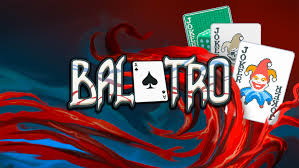The Joker card, often regarded as a wild card in various games, embodies a unique blend of symbolism, complexity, and cultural significance. While its role varies across card games, the jokercard.ca balance essence transcends mere gameplay; it represents the unpredictability of life, the duality of human nature, and the balance between order and chaos.
Historical Background
The Joker card has its origins in the early 19th century. It was introduced into the standard deck of playing cards during the Civil War in the United States, primarily as a trump card for the game of euchre. Over time, its usage expanded, and it became an integral part of various games, including poker and rummy. The Joker’s design has evolved, often featuring whimsical illustrations, clowns, or jesters, enhancing its status as a symbol of fun and unpredictability.
Symbolism of the Joker
- Duality: The Joker is a paradoxical figure, often depicted as a jester or fool, yet possessing a depth that challenges societal norms. This duality represents the complexities of human nature; we all have masks we wear and roles we play, often concealing deeper truths. The Joker embodies the idea that what seems trivial or foolish can hold significant power and meaning.
- Unpredictability: The essence of the Joker lies in its unpredictability. Just as life can throw unexpected challenges and surprises our way, the Joker card can alter the course of a game in an instant. This characteristic encourages players to adapt, strategize, and embrace uncertainty—a valuable lesson applicable in everyday life.
- Chaos and Order: In many games, the Joker serves as a wild card, capable of representing any card needed to create a winning hand. This fluidity symbolizes the delicate balance between chaos and order, suggesting that while rules and structure are essential, embracing flexibility and spontaneity can lead to success.
Cultural Impact
The Joker card has made its way into popular culture, appearing in various media forms, from movies and television shows to literature and art. It often represents themes of rebellion and nonconformity, challenging traditional values and norms. The Joker has become an archetype, especially in comic books, where characters like the Joker in Batman embody chaos and anarchy, serving as a foil to the structured, justice-driven persona of the Dark Knight.
The Joker in Games
In the realm of card games, the Joker’s role varies:
- Poker: In many variants of poker, Jokers can act as wild cards, substituting for any card to create a stronger hand. This versatility adds an element of surprise, influencing strategies and gameplay.
- Rummy: In Rummy games, Jokers are often used as wild cards that can represent any card, enhancing the game’s dynamics and creating opportunities for players.
- Tarot: In tarot decks, the Joker is often referred to as “The Fool.” This card symbolizes new beginnings, spontaneity, and a leap of faith, reinforcing the idea that embracing the unknown can lead to profound personal growth.
Conclusion
The Joker card is more than just a playful addition to a deck of cards; it is a profound symbol of complexity, duality, and unpredictability. Its rich history, cultural significance, and multifaceted roles in games make it a fascinating subject of exploration. The Joker invites us to reflect on the inherent chaos in life, urging us to embrace uncertainty and adaptability as we navigate our journeys. Whether it’s in a game of poker or as a character in a story, the Joker will continue to captivate and inspire, reminding us of the beauty found in unpredictability and the importance of maintaining a sense of humor amidst life’s challenges.

